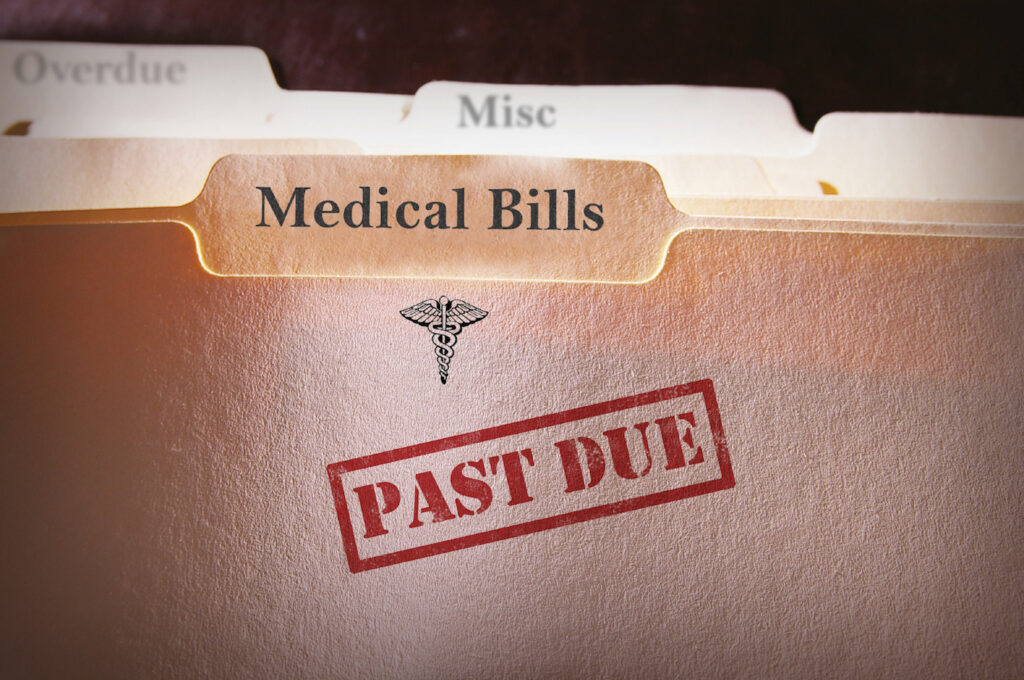
What is the Doctrine of Necessaries in North Carolina?
Last Updated on July 31, 2023
North Carolina recognizes the Doctrine of Necessaries. The doctrine originated from the legal duty of the husband to provide for the expenses of his wife. Today, it applies to both husbands and wives equally; each can be held liable for the necessary expenses their spouses receive. Unpaid medical bills are typically the necessary expense that is in dispute in this cause of action. If one spouse is not able to pay for his medical bill, a healthcare provider may sue the other spouse to acquire the overdue payments.
Requirements for a Claim
A health-care provider must show four different elements to establish a claim under the doctrine of necessaries.
A provider must show that:
(1) medical services were provided to the treated spouse;
(2) medical services were necessary for health and well-being of the treated spouse;
(3) the person against whom action is brought was married to the treated spouse at the time the medical services were provided; and
(4) payment has not been made. If the above elements can be proven, the health care provider may be able to collect the payments due for the treatment of one spouse from the other spouse.
Exception to the Doctrine
However, there is an exception to the necessaries doctrine. If the spouse who is being sued by the medical provider was separated from the treated spouse at the time of the medical services, then the spouse who did not receive treatment cannot be held liable for the overdue medical bills of the other spouse. The Supreme Court of North Carolina concluded that a spouse seeking to benefit from the separation exception must prove that the provider of medical services had actual notice of the separation during the time services were provided. The court will not consider the cause of the separation as a factor when applying this exception.
In North Carolina, there is some question as to how the provider must receive the actual notice required by the exception. Although North Carolina law specifies that a spouse seeking the exception must prove that the provider knew of the separation, it is not clear how he must have been made aware of that fact. This leaves only two options: either the provider has the burden of finding out that the couple was separated, or the spouse has the burden of telling the provider that the couple was separated. For questions regarding how to prove actual notice by a health care provider or recommendations on how to avoid application of this doctrine in your situation, contact a family law attorney.
